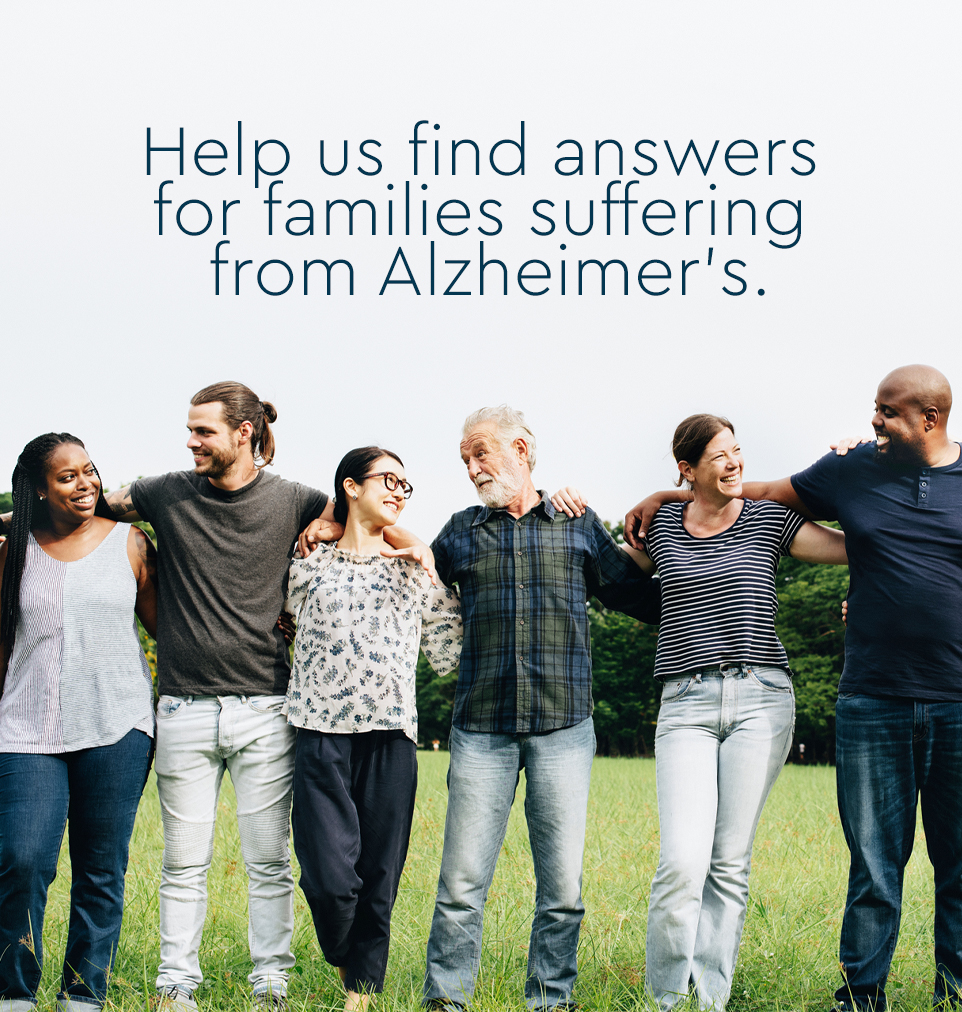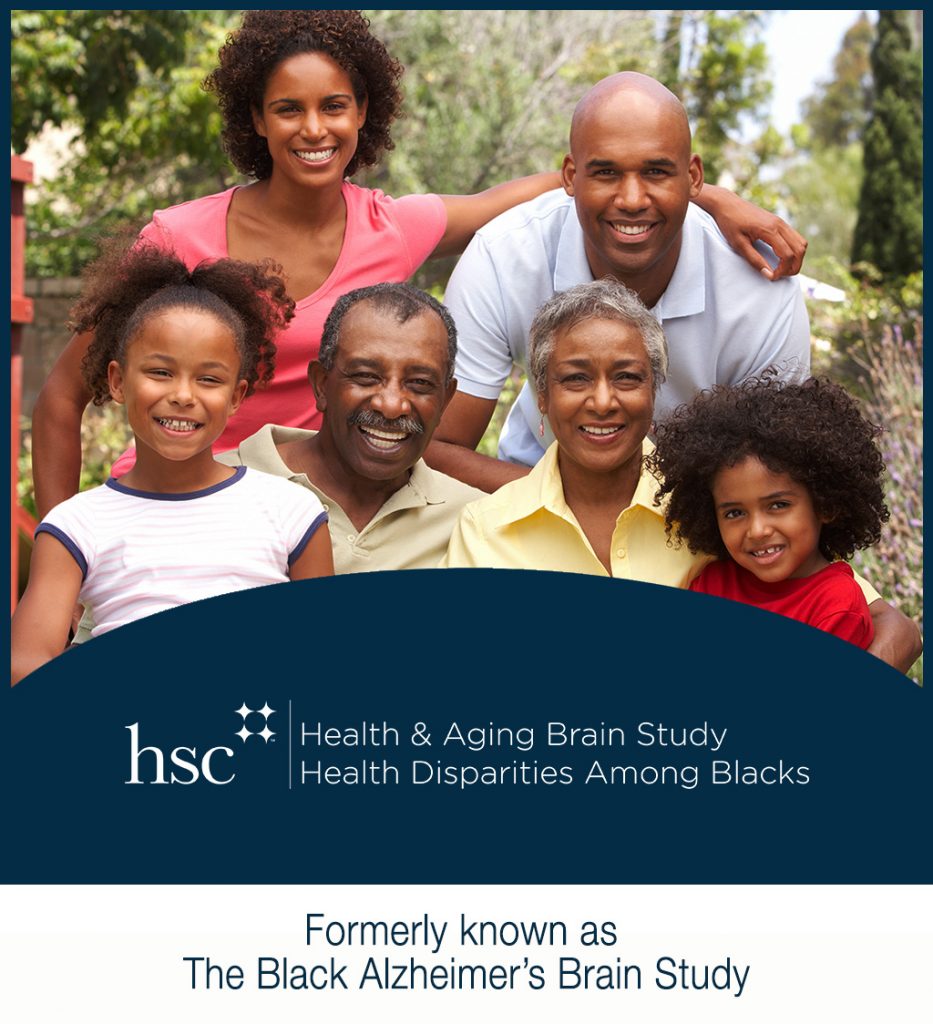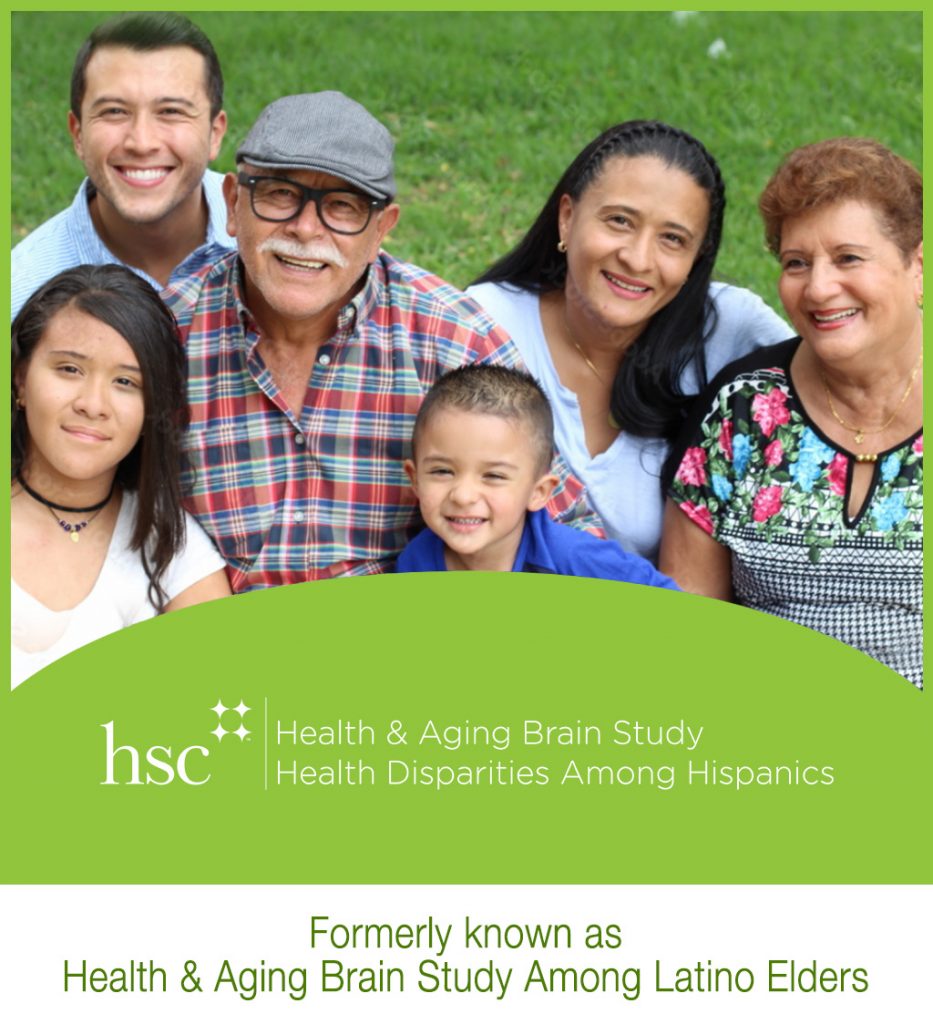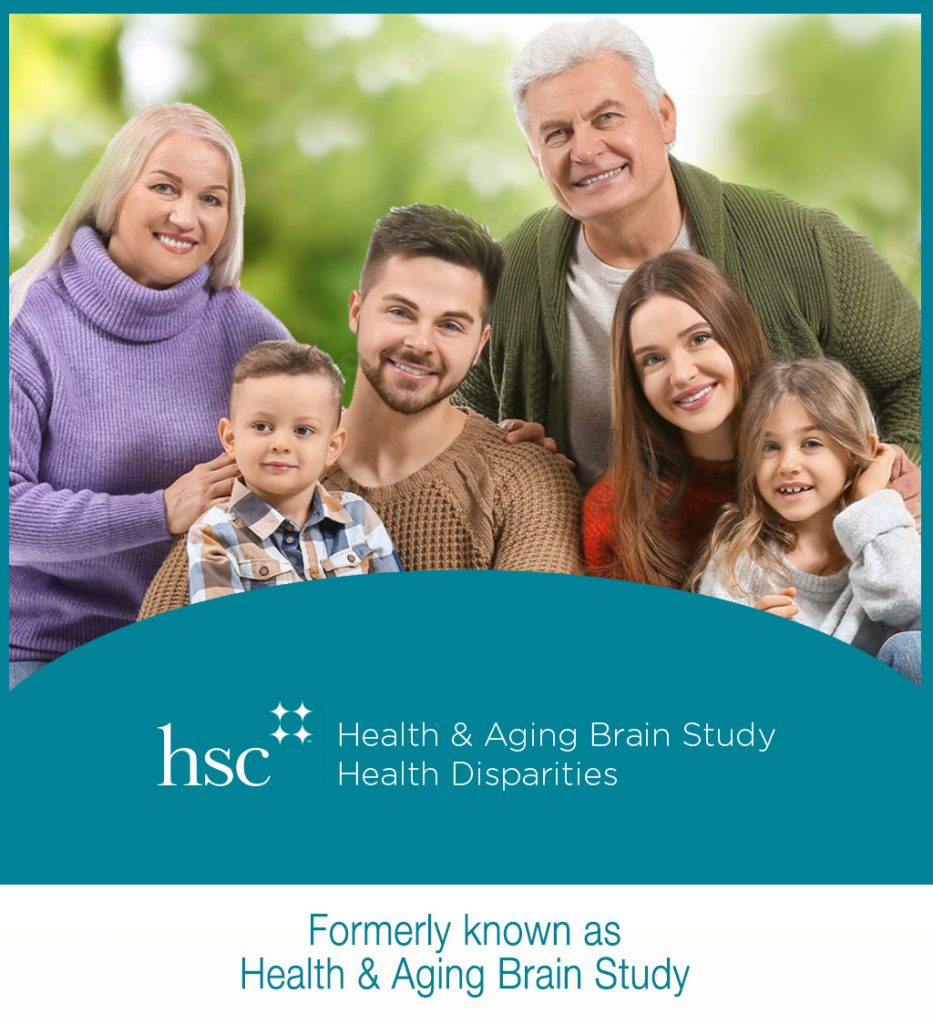

Creating innovative ways to test for and treat Alzheimer's.
Over 6 million Americans are living with Alzheimer's disease (AD). This number is expected to grow to 18 million by 2050. Additionally, the anticipated growth in AD cases is expected to be higher among Hispanics and African Americans than non-Hispanic whites.
Our research team collaborates with leading scientists from around the world to (1) develop innovative ways to test for and treat Alzheimer's and other neurodegenerative diseases as well as (2) to address health disparities in AD.
Join one of our research studies.
You have the power to change the future of Alzheimer’s Disease. Click below.
How You Can Help
Instructions for participating in the research study.
Help us find answers. Join the Health & Aging Brain Study- Health Disparities today.
817-735-2963

NO drugs.

State-of-the-art imaging and robotics.

Caring team of experts.

Earn compensation for your time.
As a participant, you will undergo free comprehensive interviews, functional exams, blood draw, a brain MRI and a PET scan. The Health and Aging Brain Study is the first of its kind. Throughout the entire process, HSC’s team of experts will provide hands-on support and care.
HELPFUL RESOURCES
Meet our Doctors
Alzheimer’s disease is an irreversible brain disease that slowly destroys memory skills, thinking skills and, eventually, the ability to carry out daily activities. Our team of research experts have dedicated their careers to finding solutions.
The University of North Texas Health Science Center at Fort Worth
HSC at Fort Worth is dedicated to understanding and eliminating health disparities in Alzheimer’s disease among African Americans and Mexican Americans. The Health & Aging Brain Study – Health Disparities (HABS-HD) is the most comprehensive study of Alzheimer’s among diverse communities ever conducted. Our team studies the biology of disease within the context of social, environmental and behavioral factors because a “who you are”, “where you are from” and “your environment” are important to how you age.
Dr. Leigh Johnson, PhD
Dr. Leigh Johnson is the Associate Director of the Institute for Translational Research and an associate professor in the Departments of Pharmacology and Neuroscience and Family Medicine. Dr. Johnson is MPI of the HABS-HD ATN study which is funded by the National Institute on Aging to examine the prevalence, progression and clinical impact of cerebral and blood-based biomarkers of amyloid (A), tau (T) and neurodegeneration (N) among ethnically diverse populations. She is also the Director of the ITR Clinical Trials Core and HSC at Fort Worth site PI for the AHEAD 3-45 study. She has extensive experience with recruitment of diverse populations into research and is the Site PI of the TRC-Pad study, which is designed to establish a trial ready cohort of individuals interested in participating in AD clinical trials. Dr. Johnson’s work also examines the link between depression and cognition. She has developed and cross-validated a depressive endophenotype (DepE) of cognitive aging across multiple national and international cohorts. This work has been translated into a proof-of-concept clinical trial (The DEMO trial), which utilizes a precision medicine approach to identify those individuals more likely to benefit from antidepressant treatment for prevention of memory loss and potentially AD.
Dr. Sid O'Bryant, PhD
Dr. Sid O’Bryant is the Executive Director of the Institute for Translational Research which is dedicated to precision medicine in Alzheimer’s disease and other neurodegenerative diseases, including Down syndrome, Lewy Body disease, Parkinson’s disease, traumatic brain injury, and others. The fully translational lab has a Biomarker Core (Dr. Hall, Director), Clinical Core (Dr. Johnson, Director), Administrative Core (Dr. O’Bryant, Director) and Data Core (Dr. Johnson, Director). The lab also has a Neuroimaging Core (USC, Dr. Toga, Director). Dr. O’Bryant's multiple NIH grants focus on novel strategies for disease detection, screening into trials (therapeutic and prevention), and patient stratification for optimal treatment response. As part of this work, the lab has a strong focus on the impact of ethnicity/diversity on cognitive loss during the aging process and runs the one-of-a-kind Health & Aging Brain Study: Health Disparities (HABS-HD), which is the most comprehensive study of Alzheimer’s among diverse communities ever conducted.
With your help, we can make a powerful impact to provide care, support and research for our communities. Join the fight against Alzheimer’s by signing up for our Health & Aging Brain Study - Health Disparities today. info@healthandagingbrainstudy.com
About HSC
- The University of North Texas Health Science Center at Fort Worth is one of the nation’s premier graduate academic medical centers, with six schools that specialize in patient-centered education, research and health care.
- Our mission is to create solutions for a healthier community
- We keep patients and our community at the center of our efforts in education, research and care.
- We push the boundaries of discovery.
- We help make sick people well and keep vigorous people healthy.
-
Health & Aging Brain Study-Health Disparities aligns with HSC’s commitment to confront racism as a public health emergency and to reduce racial/ethnic health disparities.



